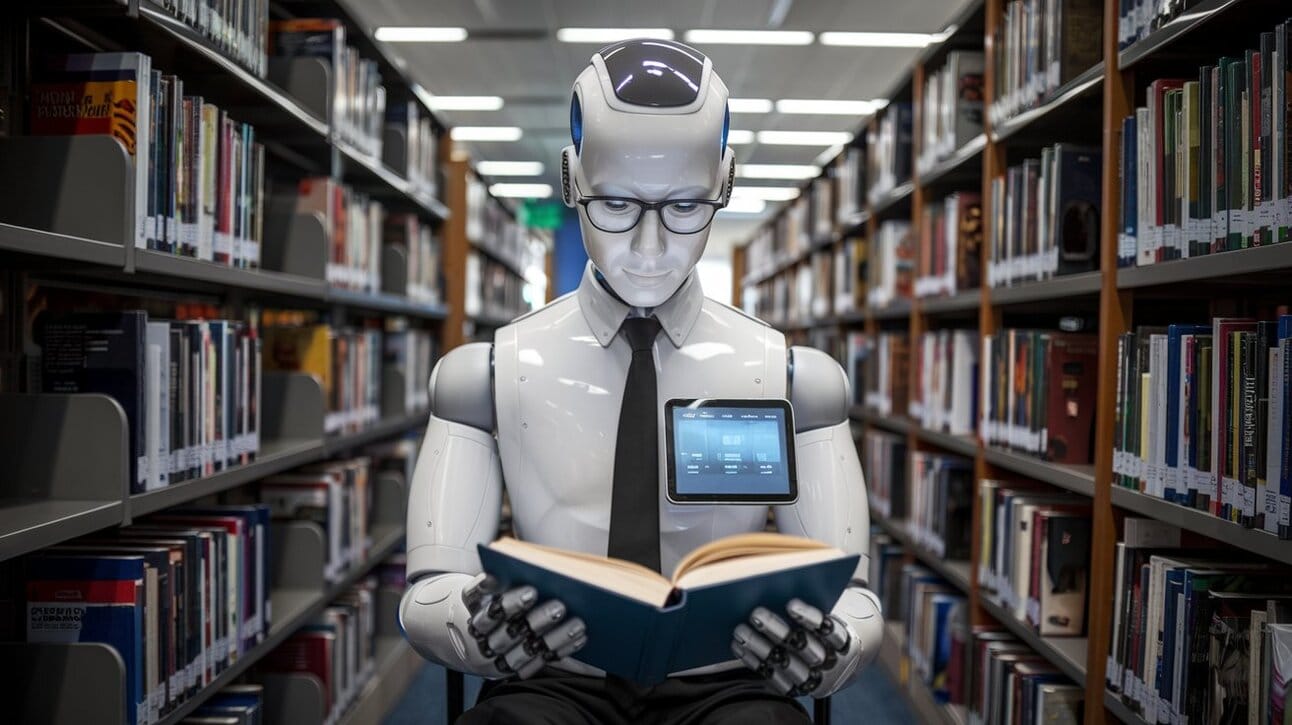
Welcome, AI Enthusiasts.
Midjourney is preparing to launch an upgraded web tool that allows users to edit any uploaded images using its AI, including features like retexturing objects and modifying colors based on captions.
Penguin Random House is adding a warning to the copyright pages of its books to prohibit their use for training AI technologies.
In today’s issue:
🤖 MIDJOURNEY
🦾 PENGUIN
🛠️ AI PRODUCTS
🥋 AI DOJO
🤖 QUICK BYTES
Read time: 5 minutes.
LATEST HIGHLIGHTS

Image source: Midjourney
To recap: Midjourney is preparing to launch an upgraded web tool that allows users to edit any uploaded images using its AI, including features like retexturing objects and modifying colors based on captions. This feature, expected to release soon, will initially be available to a select group of users with enhanced human and AI moderation to prevent misuse. However, concerns arise over the potential for AI tools like these to contribute to copyright infringement and the spread of deepfakes, especially as deepfakes become increasingly prevalent online. Midjourney has faced criticism for its AI practices but has recently taken steps to limit deepfake risks.
The details:
Midjourney is launching a new web tool that allows users to edit uploaded images with generative AI, enabling changes like retexturing objects and repainting colors based on text prompts. The tool, set to release next week, aims to enhance image editing but raises concerns about deepfakes and copyright infringement. Midjourney has committed to embedding metadata in AI-generated images but hasn't adopted broader industry standards for tracking image provenance. Initially, the tool will be limited to a select group, with increased moderation to prevent misuse. The rise of deepfakes has sparked public concern, and laws addressing AI-aided impersonation are emerging in some U.S. states.
Here is the key takeaway: Midjourney is releasing a web tool to let users edit images with AI, raising concerns about potential misuse, like deepfakes and copyright issues, despite efforts to implement safeguards and metadata tracking.
PENGUIN
Penguin Random House to Include AI Disclaimer on Copyright Pages of Its Books

Image source: Ideogram
In Summary: Penguin Random House is adding a warning to the copyright pages of its books to prohibit their use for training AI technologies. This new language will appear in both new releases and reprints, reflecting the publisher's concerns amid ongoing lawsuits over AI's use of copyrighted material. While the publisher opposes unauthorized AI use, it remains open to selectively using generative AI tools where beneficial, emphasizing responsible and cautious adoption.
Key points:
- Penguin Random House is adding an AI warning to its copyright pages, prohibiting the use of its books for AI training.
- The warning will appear in both new books and reprints.
- This move comes as legal battles over the use of copyrighted materials for AI training are ongoing.
- Despite the warning, the publisher is open to using AI tools responsibly in certain cases.
- The publisher promises to defend its authors' intellectual property while selectively incorporating AI when it aligns with its goals.
Our thoughts: We see Penguin Random House’s decision to add AI-specific language to its copyright pages as a proactive response to the growing use of copyrighted materials in AI training. It’s a significant move in an evolving legal and ethical landscape, where AI models often rely on vast datasets that may include unlicensed or unauthorized content. This reflects a broader tension between creative industries and tech companies, and it underscores the need for clearer guidelines around intellectual property in the age of generative AI.The publisher's stance highlights a dual approach: on the one hand, defending authors' rights and protecting content from unregulated AI usage, while on the other hand, acknowledging the potential benefits of AI within publishing itself. By incorporating AI "selectively and responsibly," Penguin Random House is balancing innovation with caution, likely to ensure they remain competitive while safeguarding the integrity of their content.This is an important step in setting industry standards, but it also raises questions about how enforceable such restrictions will be, given the global and often opaque nature of AI model training. Ultimately, this move could spark similar actions across creative sectors, influencing how intellectual property is managed in a world increasingly shaped by AI.
TRENDING TECHS
🛠 ClipChamp- Fast forward your video editing
🧾 Ollama-The easiest way to run large language models locally
🤖 Cartesia Sonic- Sonic is the fastest human-like voice API.
AI DOJO
AI Daily Planning
1. Automated Scheduling: AI can analyze your meetings, deadlines, and personal preferences to automatically generate an optimized daily schedule. It can prioritize tasks based on urgency and importance, and even suggest the best time for breaks to maintain productivity.
2. Task Management: Instead of manually organizing tasks, AI can track ongoing projects and deadlines. It can suggest which tasks to focus on each day and send reminders to ensure nothing is missed. Over time, it can learn from your habits and adjust recommendations.
3. Personalized Reminders and Notifications: AI can deliver reminders tailored to your specific working style. For example, if it notices you tend to finish tasks more quickly in the morning, it might prompt you to tackle harder tasks early in the day.
4. Integrating Health & Wellbeing: AI can go beyond just task management by including wellness into your daily planning. It can suggest when to take breaks, drink water, or meditate based on stress levels and workload.
5. Email & Communication Assistance: AI tools can help manage your email inbox or messages by categorizing, prioritizing, and drafting responses, saving time on communication while keeping you on track.
6. Smart Insights and Analytics: By analyzing patterns in your work and schedule, AI could provide insights into productivity trends, suggest improvements, or highlight potential bottlenecks.
This kind of AI setup would adapt to your personal preferences and evolving needs, creating a highly customized daily planning assistant that goes beyond generic scheduling tools.
QUICK BYTES
Mira Murati, Former OpenAI CTO, Secures Funding for New AI Startup
Mira Murati, former CTO of OpenAI, is reportedly raising venture capital for a new AI startup focused on developing products using proprietary models, with plans to secure over $100 million in funding. Murati, who recently departed from OpenAI, expressed her desire to explore new opportunities after acknowledging the company's significant advancements in AI systems. Before her tenure at OpenAI, she held positions at Tesla and Leap Motion, and briefly served as interim CEO during a leadership transition at OpenAI. Her departure comes amid a wave of exits from the company, coinciding with OpenAI's record $6.6 billion funding round.
Claude: A Comprehensive Guide to Anthropic's AI
Anthropic, the second-largest AI vendor after OpenAI, has developed a suite of generative AI models called Claude, which can perform various tasks, including image captioning, email writing, and coding challenges. The Claude models—Haiku (lightweight), Sonnet (midrange), and Opus (flagship)—are named after literary forms and offer different capabilities, with Claude 3.5 Sonnet currently being the most capable.The models have a standard context window of 200,000 tokens (about 150,000 words) and can analyze text, images, and diagrams, though they cannot access the internet or generate complex images. Pricing for the models varies, with Claude 3 Haiku being the most affordable option at $0.25 per million input tokens, while Claude 3 Opus costs $15 per million.Anthropic offers various subscription plans for users, including a free tier with limitations and paid plans like Claude Pro, Team, and Enterprise, each providing different features and capabilities. However, there are inherent risks with generative AI models, such as inaccuracies in output and potential copyright issues from using public web data for training.
Throne's Toilet Camera Captures Your Bathroom Moments
Throne, an Austin-based health startup, has developed a camera that attaches to toilet bowls to capture images of waste. Currently in beta, this "toilet camera" utilizes AI, referred to as “artificial gut intelligence,” to assess gut health and hydration based on the analyzed waste. The company emphasizes privacy, stating that it only captures relevant images and anonymizes data, with users able to request access or deletion of their information. Founded by Scott Hickle and others after pivoting from a healthcare staffing marketplace, Throne targets the aging population and individuals with chronic digestive conditions. The camera is available for preorder at a discounted price of $299.
SPONSOR US
🦾 Get your product in front of AI enthusiasts
THAT’S A WRAP
